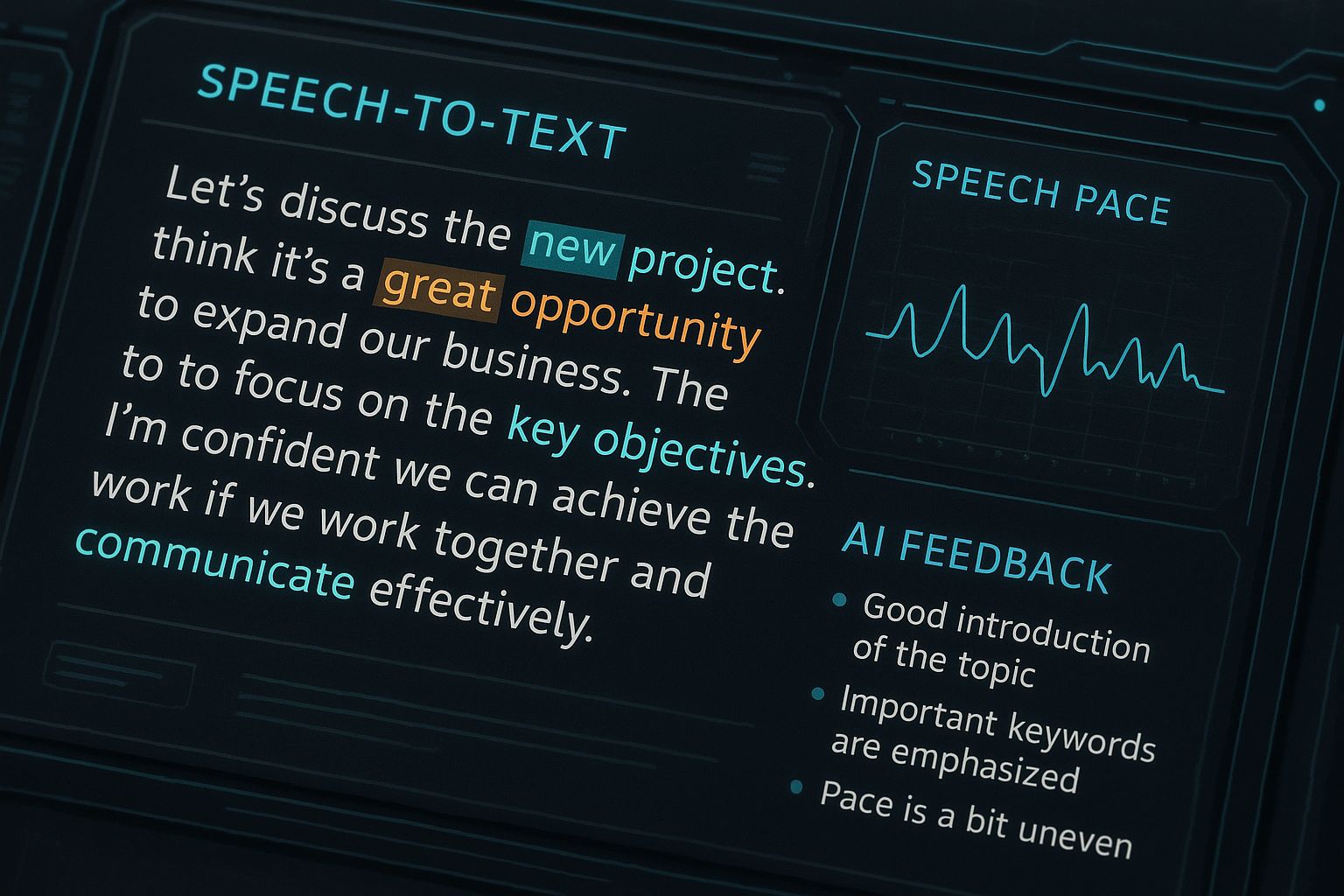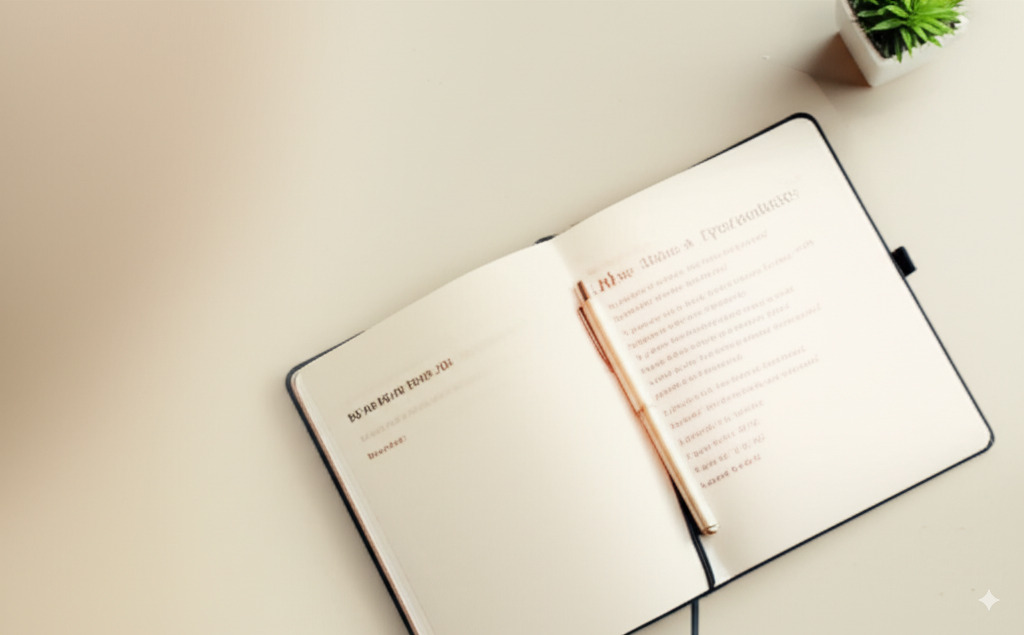The job interview. Just the phrase can conjure up a mix of excitement and anxiety. You’ve polished your resume, researched the company, and picked out the perfect outfit. But there’s one crucial step that often gets overlooked or underutilized: practice. Specifically, practicing how you articulate your skills, experiences, and personality under pressure.
Traditionally, interview practice meant roping in a friend, family member, or shelling out for a professional career coach. While these methods have their merits, they also come with limitations – busy schedules, subjective feedback, and, in the case of coaches, significant costs.
But what if there was a way to get consistent, objective, and on-demand interview practice without needing another human? Enter the world of Artificial Intelligence. AI-powered interview practice platforms are revolutionizing how candidates prepare, offering sophisticated tools that were once the stuff of science fiction. This comprehensive guide will walk you through exactly how to practice interviews effectively using just AI, turning you into a confident, well-prepared candidate.
Why Ditch the Human (Sometimes) and Embrace the AI? The Perks of AI Interview Practice
Before we dive into the “how,” let’s understand the “why.” What makes AI a compelling alternative or supplement to traditional interview coaching?
- Accessibility & Convenience:
- 24/7 Availability: AI never sleeps. Got a burst of motivation at 2 AM? Your AI coach is ready. Last-minute interview sprung on you? Squeeze in a practice session.
- Practice Anywhere: All you need is an internet connection and a device. Practice from the comfort of your home, a quiet library, or even on the go.
- Affordability:
- Professional career coaches can charge anywhere from $100 to $500+ per hour. Many AI interview tools offer free tiers or significantly more affordable subscription plans, making quality practice accessible to everyone.
- Objectivity & Consistency:
- AI provides feedback based on data and algorithms, free from human biases, moods, or personal opinions. Friends might be too kind; AI will tell it like it is (constructively, of course).
- The feedback is consistent. You can track your progress against the same metrics over time.
- Unlimited Repetition:
- Want to rehearse your answer to “Tell me about yourself” twenty times? Go for it! AI won’t get bored or impatient. This repetition builds muscle memory and confidence.
- Personalized & Targeted Practice:
- Many AI tools allow you to tailor practice sessions to specific job roles, industries, or question types (behavioral, technical, situational).
- Some can even analyze job descriptions to generate relevant practice questions.
- Safe & Private Environment:
- Feel awkward practicing in front of others? AI offers a judgment-free zone. Make mistakes, stumble over words, and refine your answers without fear of embarrassment.
- Data-Driven Insights:
- AI can analyze various aspects of your performance:
- Content: Use of keywords, clarity, conciseness, adherence to frameworks like STAR.
- Delivery: Pace of speech, use of filler words (uh, um, like), tone modulation.
- Non-Verbal Cues (Advanced Tools): Some tools are beginning to analyze eye contact, facial expressions, and body language.
- AI can analyze various aspects of your performance:
Choosing Your AI Interview Practice Partner: Features to Look For
Not all AI interview tools are created equal. Here are key features to consider when selecting a platform:
- Realistic Question Banks: Does it offer a wide variety of questions, including common, behavioral (STAR method), technical (if applicable), and situational questions? Can you customize questions or input your own?
- Recording Capability: The ability to record your video and audio responses is crucial for self-assessment and for the AI to analyze your performance.
- Comprehensive Feedback: Look for detailed feedback on:
- Verbal Content: Answer structure, relevance, keyword usage, clarity.
- Speech Patterns: Pace, filler words, pauses, intonation.
- Body Language (if available): Eye contact, posture, gestures.
- Transcription Services: Automatic transcription of your answers helps you review and refine your wording.
- Performance Analytics & Tracking: Does the tool track your progress over time, highlighting areas of improvement?
- Customization Options: Can you simulate different interview types (e.g., panel, screening) or focus on specific skills?
- User Interface (UI) & User Experience (UX): Is the platform intuitive and easy to use?
- Integration with Job Descriptions: Some advanced tools can analyze a job description you provide and generate tailored questions. Platforms like AceJobi.pro are designed with these sophisticated features in mind.
Setting the Stage for Success: Preparing for Your AI Practice Session
Just like a real interview, preparation is key for your AI practice sessions.
- Define Your Objectives:
- What do you want to achieve? Are you preparing for a specific job interview? Do you want to improve your behavioral answers? Or perhaps work on your delivery?
- If you have a job description, keep it handy. This will help you focus on relevant skills and experiences.
- Create an Interview-Like Environment:
- Quiet Space: Minimize distractions. Let household members know you’re “in an interview.”
- Good Lighting: Ensure your face is well-lit, preferably with natural light or soft artificial light in front of you.
- Professional Background: A clean, uncluttered background is best. A plain wall or a bookshelf works well.
- Dress the Part: Consider wearing what you’d wear to the actual interview. This helps you get into the right mindset.
- Technical Setup:
- Stable Internet Connection: Essential for smooth recording and AI processing.
- Webcam & Microphone: Test them beforehand. Use headphones with a mic for clearer audio if your built-in mic isn’t great.
- Close Unnecessary Tabs/Applications: Prevent slowdowns and notifications.
- Mindset:
- Treat it seriously, as if it were a real interview. This will make the practice more effective.
- Be open to feedback and willing to iterate.
The AI-Powered Interview Practice Workflow: A Step-by-Step Guide
Now, let’s get down to the nitty-gritty of practicing with your AI coach.
Step 1: Question Generation & Selection
- Leverage AI Suggestions: Most platforms will offer a range of questions based on common interview scenarios or allow you to select categories (e.g., “Strengths & Weaknesses,” “Teamwork,” “Problem-Solving”).
- Customize for Specific Roles: If the AI tool allows, input the job title or even paste the job description. The AI can then generate more targeted questions. For instance, if you’re applying for a “Project Manager” role, expect questions about planning, stakeholder management, and risk mitigation.
- Focus on Behavioral Questions (STAR Method): These are crucial. “Tell me about a time when…” questions are best answered using the Situation, Task, Action, Result (STAR) method. AI can help you practice structuring these effectively.
- Don’t Forget Technical Questions (If Applicable): If your field requires technical expertise, ensure your AI tool can generate or allow you to input relevant technical questions.
Step 2: Recording Your Answers
This is where the magic happens.
- Hit Record and Speak Naturally: Try to be yourself. Don’t aim for perfection on the first try.
- Maintain Eye Contact: Look at your webcam as much as possible, simulating eye contact with an interviewer.
- Be Mindful of Body Language: Sit up straight, use natural hand gestures (if that’s your style), and try to appear engaged.
- Pace Yourself: Speak clearly and at a moderate pace. Avoid rushing.
- Complete Your Thought: Even if you stumble, try to finish your answer.
Step 3: Receiving and Analyzing AI Feedback
Once you’ve recorded your answer, the AI will process it and provide feedback. This is the core value proposition.
- Content Analysis:
- Keywords: Did you use relevant industry terms or keywords from the job description?
- Clarity & Conciseness: Was your answer easy to understand? Did you ramble or get straight to the point?
- STAR Method Adherence: For behavioral questions, did you clearly outline the Situation, Task, Action, and Result? Some AI tools specifically look for this structure.
- Relevance: Was your answer directly related to the question asked?
- Delivery Analysis:
- Pace of Speech: Were you speaking too fast or too slow? AI can measure words per minute.
- Filler Words: How many times did you say “um,” “uh,” “like,” “you know”? AI can count these and help you reduce them.
- Pauses: Were your pauses effective or awkward?
- Tone & Enthusiasm: While harder for AI to gauge perfectly, some tools offer insights into your vocal tone. Did you sound engaged and enthusiastic?
- Non-Verbal Feedback (Advanced Tools):
- Eye Contact: Did you maintain good eye contact with the camera?
- Facial Expressions: Did you appear positive and engaged?
- (More advanced features are still evolving in this area.)
- Transcription Review: Read through the transcript of your answer. Seeing your words written down can reveal awkward phrasing or areas for improvement that you might miss when just listening.
Step 4: Iteration, Refinement, and More Practice
The first round of feedback is just the beginning.
- Identify Key Improvement Areas: Don’t try to fix everything at once. Pick 1-2 key things to work on for your next attempt at that question. For example, reducing filler words or more clearly stating the “Result” in your STAR answer.
- Re-record and Review: Practice the same question again, incorporating the feedback. Compare your new recording and AI analysis with the previous one.
- Track Your Progress: Many AI tools will show you how your scores or metrics improve over time. This can be highly motivating.
- Expand Your Question Repertoire: Once you feel confident with a few core questions, move on to others. Aim for a broad range of practice.

Ready to land your dream job? Start Practicing Now!

Join thousands preparing smarter with AI-powered interview coaching.
Advanced AI Practice Techniques: Going Beyond Basic Q&A
Once you’ve mastered the fundamentals, explore these advanced strategies:
- Simulate Different Interview Formats:
- Panel Interviews: Practice answering questions from (imagined) multiple interviewers. Some AI tools might offer scenarios for this.
- Stress Interviews: While less common, you can practice maintaining composure by having the AI ask rapid-fire or challenging questions.
- Practice Answering Follow-Up Questions: After your initial response, anticipate what an interviewer might ask next. Some AIs can generate follow-up questions based on your answer. If not, pause and think, “What would they dig deeper on here?” and practice that.
- AI for Research (Indirect Practice): Use AI tools (like ChatGPT or Bard) to research the company, industry trends, or even common questions asked for similar roles at that company (if public data exists). This isn’t direct practice but feeds into your preparation.
- “Teach Back” Method: After receiving AI feedback, try explaining the ideal answer or the concept back to the AI (or just verbally to yourself). This reinforces learning.
- Focus on Specific Skill Demonstrations: If a job requires “strong communication skills,” consciously focus on clarity, tone, and conciseness in your AI practice sessions, and look for AI feedback related to these areas.
Maximizing Your AI-Powered Interview Practice
To get the most out of your AI interview coach:
- Consistency is Key: Short, regular practice sessions (e.g., 30 minutes a few times a week) are more effective than one long, infrequent session.
- Mix It Up: Don’t just practice your “perfect” answers. Practice responding to unexpected questions or questions you find challenging.
- Focus on Weaknesses, Reinforce Strengths: AI feedback will highlight areas for improvement. Dedicate time to these, but also practice answers you’re already good at to maintain confidence.
- Combine with Other Prep: AI practice is powerful, but it’s one piece of the puzzle. Continue researching the company, preparing your own questions for the interviewer, and networking.
- Don’t Aim for Memorization, Aim for Natural Flow: Your goal isn’t to recite scripted answers. It’s to internalize your key points and deliver them confidently and naturally. AI practice helps you find that flow.
- Review Full Sessions: If your AI tool allows, review an entire mock interview session, not just individual answers, to get a sense of your overall pacing and endurance.
Addressing Potential Limitations of AI (And How to Overcome Them)
While AI is a fantastic tool, it’s important to be aware of its current limitations:
- Nuance and Empathy: AI can’t fully replicate the nuanced social dynamics or empathetic responses of a human interviewer. It’s getting better, but it’s primarily data-driven.
- Overcome by: Supplementing AI practice with one or two mock interviews with trusted humans if possible, especially for final polishing.
- Industry-Specific Jargon or Niche Knowledge: AI might not always grasp highly specific industry jargon or the context of very niche roles perfectly.
- Overcome by: Customizing questions and being mindful of this during feedback review. You are still the expert on your field.
- Over-Reliance on Scores: Don’t get too hung up on achieving a “perfect” score. Focus on genuine improvement and confidence.
- Overcome by: Using AI feedback as a guide, not an absolute judgment.
- Technical Glitches: Like any software, AI tools can sometimes have bugs or technical issues.
- Overcome by: Choosing reputable platforms and having a backup plan if a session is interrupted.
The Future is Bright: AI in Interview Preparation
The field of AI in interview preparation is rapidly evolving. We can expect even more sophisticated features in the future:
- Hyper-Personalized Feedback: AI that adapts even more precisely to your individual learning style and specific job targets.
- Emotional Intelligence (EI) Analysis: Deeper insights into your displayed emotional cues and how they might be perceived.
- Virtual Reality (VR) / Augmented Reality (AR) Simulations: Immersive interview environments for even more realistic practice.
- Predictive Analytics: AI potentially offering insights into how your answers might align with a company’s culture or a hiring manager’s preferences (ethically managed, of course).
Conclusion: Your AI-Powered Path to Interview Success
Practicing for interviews no longer requires a packed schedule or a hefty budget. AI-powered interview tools offer an accessible, objective, and highly effective way to hone your skills and build unwavering confidence. By understanding how to choose the right AI partner, setting up your practice sessions for success, diligently working through the feedback loop, and employing advanced techniques, you can transform your interview performance.
The power to ace your next interview is literally at your fingertips. Embrace the technology, put in the practice, and walk into your next interview not just prepared, but AI-empowered. You’ve got this!
How to Answer “Describe a Time You Dealt with a Difficult Colleague”
The moment an interviewer asks, “Tell me about a time you dealt with a difficult…
5 Mindfulness Techniques to Calm Interview Anxiety
That familiar feeling of pre-interview dread—the racing heart, the sweaty palms, the mind going completely…
“What’s Your Greatest Weakness?” Is a Trap. Here’s How to Ace It.
Your interview is going great. You’re building rapport, you’ve nailed the technical questions, and you’re…
How to Answer “Tell Me About Yourself” (A Winning Formula + Examples)
The interview begins. The hiring manager leans forward with a smile and says the five…
10 Things You Must Do the Night Before Your Job Interview
You did it. Your resume stood out, your cover letter shone, and now the big…
How to Answer “Tell Me About a Time You Failed” (STAR Guide)
Of all the questions an interviewer can ask, this one probably makes your stomach drop…
FAQ: Practicing Interviews with AI
Q1: How many AI practice sessions should I do before a real interview?
A: There’s no magic number, as it depends on your current skill level and the complexity of the interview. However, aim for at least 3-5 dedicated sessions focusing on key questions and behavioral examples. More importantly, focus on the quality of practice and iterative improvement based on AI feedback. Consistent, shorter sessions are often more effective than one marathon session.
Q2: Can AI really help with nerves and interview anxiety?
A: Yes, significantly! The more you practice in a safe, AI-driven environment, the more familiar and comfortable you’ll become with articulating your thoughts and answers. This familiarity reduces the “fear of the unknown,” which is a major contributor to anxiety. AI feedback can also pinpoint habits linked to nervousness (like excessive filler words or speaking too quickly), allowing you to consciously address them.
Q3: What if the AI feedback seems generic or doesn’t quite understand my niche industry?
A: This can happen, especially with more specialized roles. Firstly, ensure you’re using a high-quality AI tool, preferably one that allows for customization or inputting job-specific details. Secondly, use AI feedback as one data point. If feedback on content seems off due to niche context, focus more on the AI’s feedback regarding delivery (pace, fillers, clarity) which is often more universally applicable. You are still the expert in your field; use AI to polish how you present that expertise.
Q4: Is it better to use AI for behavioral questions or technical questions?
A: AI can be incredibly valuable for both. For behavioral questions, AI excels at helping you structure answers using methods like STAR and can provide feedback on the clarity and impact of your stories. For technical questions, while AI might not (yet) deeply debug complex code on the fly in all tools, it can help you practice explaining technical concepts clearly, assess the accuracy of your definitions, and time your responses. Many platforms allow you to input your own technical questions for practice.
Q5: Can AI replace a human coach entirely?
A: AI offers many advantages like accessibility, objectivity, and cost-effectiveness, making it a powerful standalone tool for many. However, a seasoned human coach can offer nuanced insights, industry connections, and a level of personalized empathy that AI is still developing. For optimal preparation, a hybrid approach can be fantastic: use AI for frequent, iterative practice and objective feedback, and perhaps consult a human coach for strategic advice or a final mock interview if your budget and time allow. But if a human coach isn’t an option, AI alone is a formidable way to prepare.








Leave a Reply to Practicing Interview: How to Make AI Feedback Work for You – AceJobi Cancel reply